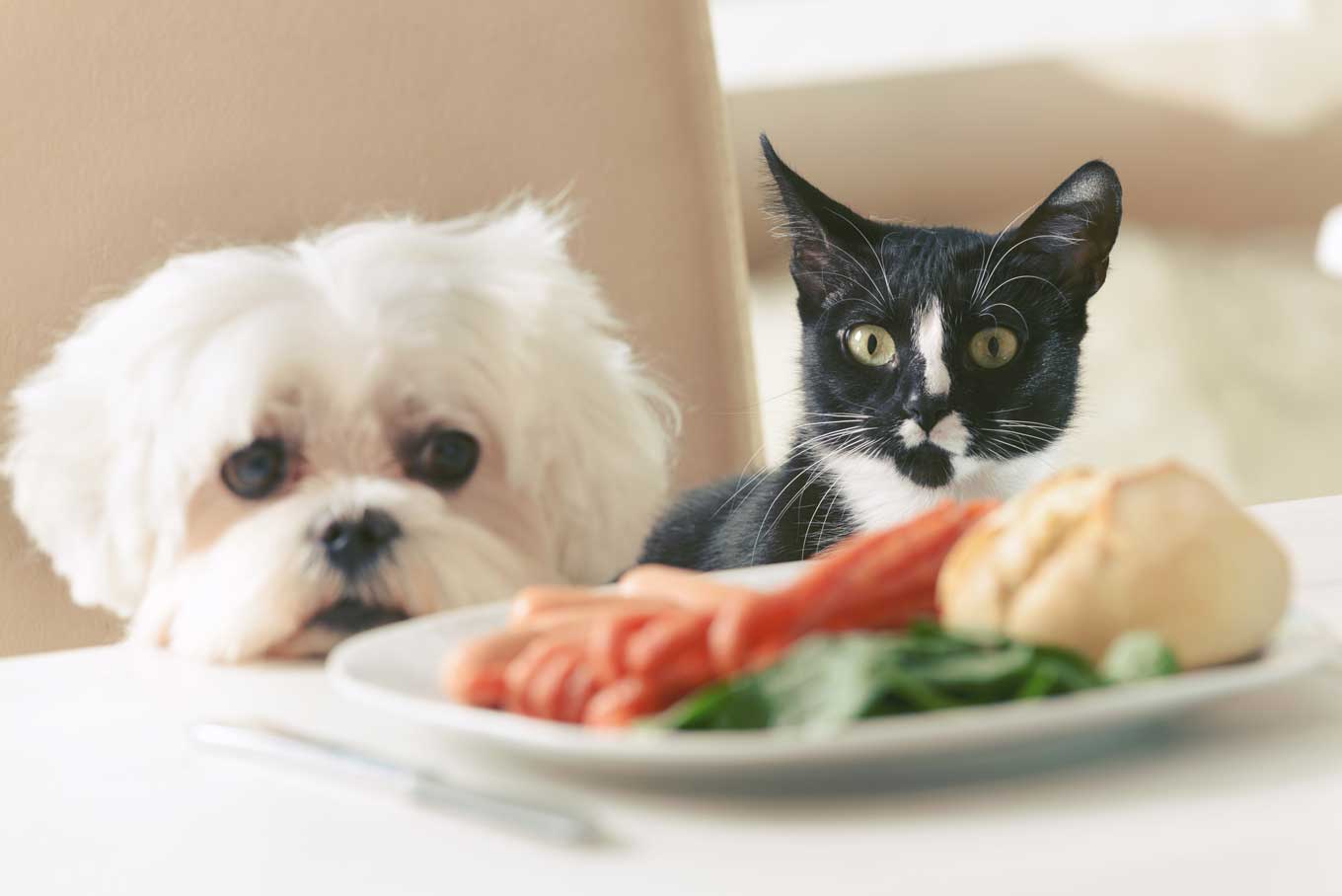Tips for a Happy and Healthy Thanksgiving With Pets

Thanksgiving wouldn’t be the same without our pets — they’re members of the family, after all.
But with an overabundance of enticing food, busy schedules and perhaps a lot of unfamiliar guests, pet health and safety risks abound during the holiday.
Here are some tips to make sure everyone is happy on turkey day.
Be Food Conscious
Does your mouth water just thinking about Thanksgiving dinner? Imagine how your pets feel. All those goodies on the countertop — and the inevitable food waste in the trash — prove all-too tempting.
Do your best to keep people food and pets as separate as possible. You may want to celebrate the day by giving them a few bites here and there, but a pet’s health should win out. Pet diets should be a constant.
Fatty scraps such as chicken skin and oily dishes, as well as other rich foods, can lead to severe digestive tract issues (and yes, that includes pouring gravy or fat liquid over dry pet food).
Turkey bones as treats? The short answer is “no.” They can splinter and some can fracture a pet’s teeth. Think about making or buying a holiday treat just for them.
Among other foods pets should never eat: yeast dough; chocolate; coffee beans and grounds; grapes and raisins; onions and garlic; Macadamias and walnuts; mushrooms; nutmeg; sage; the sweetener Xylitol; and raw or undercooked meat.
Also important: Keep trash in a place where pets can’t find it, preferably in a closed container outside or behind a closed door. Make sure trash bags are covered and tightly secured.
If you have a pet emergency during the holidays and your veterinarian is not available the NC State Veterinary Hospital’s small animal emergency service is open 24 hours a day, seven days a week. It is at 1052 William Moore Drive. Call 919-513-6911 or go here.
Party Fouls
If you’re hosting a large Thanksgiving dinner (and probably a football-watching gathering), pets may be confused or scared by the slightest hint of the unfamiliar.
If your pet is usually wary around even the quietest and sweetest of guests, Thanksgiving may be a challenge. The first step: Make sure pets see you interacting positively with guests and show that they aren’t threats. This may influence how your pet behaves around them as well, especially if they have never met them.
Another option is creating a pet “safe room,” an area of the home they are familiar with, comfortable in and a place guests are unlikely to wander into. If your pet typically handles new people and crowds well, it still pays to help them get used to the new sights and smells. One approach is putting a dog on a leash and walking them around to get used to everything that is new. You may also find it helpful to have them greet guests while on the leash.
Make sure to keep a close eye on pets, especially as guests enter and exit, so they aren’t able to make a break for it through the door. The holidays are a great time to make sure identification tags and microchips are updated.
Petsgiving 2018
On the Road
If you’re traveling this Thanksgiving — 54 million Americans will this year, the most since 2005 — taking along pets requires careful consideration.
Most holiday travel is by car and if your pet is typically fine riding for short distances it does not necessarily mean long trips will be comfortable. Stop to take breaks and check on them periodically. Make sure dogs can use the bathroom while on a leash at areas such as rest stops. Bring along plenty of water, as well as food and treats.
Cats must be in carriers to travel safely in a car, though carriers may not be necessary for dogs. Consult with your primary care veterinarian about your pet’s specific travel needs.
If you’re flying, check in advance with your carrier; airlines have regulations for traveling with pets. A good way to prepare for long-term confinement in a plane is working with your pets ahead of time to help them get accustomed positively to a carrier required by airlines. It’s usually not a good idea to put them in a carrier for the first time right before takeoff.
If boarding your pet for Thanksgiving, make sure it is at a kennel they are familiar with. If using a kennel for the first time, have your pet visit it first and try day boarding head of the holiday. Chat with staff about your pet’s needs.
De-stress Before Distress
Animals pick up on their owners’ emotions; they are particularly adept at discerning people’s moods. Think of ways to alleviate the holiday stress that comes with party-hosting, cleaning, cooking and last-minute shopping.
Do what works for you: yoga, deep breaths, bubble baths. Stay as calm as possible in front of pets.
And of course, pets can help with stress, too. Find room in your schedule to spend a bit of quality time with your pets, even during the rush-rush holidays.
A little downtime does a lot of good — for you and your pet.
~Jordan Bartel/NC State Veterinary Medicine
- Categories:


